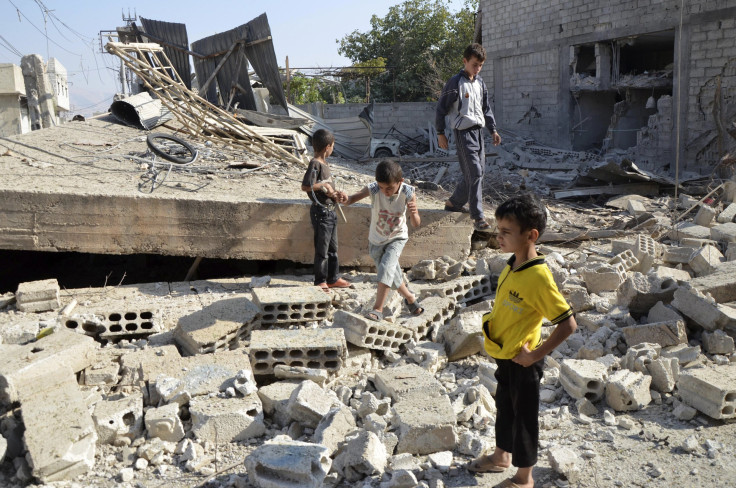U.S. Begins Supplying Lethal and Nonlethal Aid To Syrian Rebel Forces: Opposition Spokesman

The U.S. has started providing military aid to rebel forces fighting Syrian President Bashar Assad’s army, a spokesperson for the opposition said in a news conference on Wednesday, in the first public confirmation that America is supplying some lethal weapons and ammunition to the country's rebel groups.
The U.S., in June, had decided to supply small arms and ammunition to a coalition of Syrian rebel groups, but the process was delayed by several months.
"The U.S. is distributing non-lethal aid and ... some lethal assistance as well to the SMC (Supreme Military Council)," Saleh, a rebel spokesperson based in Turkey, told a news conference in Washington, Reuters reported. The SMC oversees operations of rebel groups loyal to General Salim Idriss.
There have been concerns over U.S. military aid to Syrian rebels, as many observers pointed out that U.S weapons could reach the wrong hands, as the rebel forces, which are a loose coalition of several groups opposed to Assad’s regime, are believed to include entities linked to al-Qaeda and other terrorist organizations.
Allaying such concerns, Saleh said that the U.S. is now providing lethal assistance "because they are sure that the mechanisms that the SMC has established are well tested and they will be sure that the weapons are not falling into the wrong hands."
U.S. Secretary of State John Kerry, on Tuesday, said that Washington is providing support to the Syrian opposition but declined to give specific details of the military aid being provided, such as the quantity or variety of the arms being supplied.
"It is ramping up, but I can tell you that many of the items that people have complained were not getting (to) them are now getting to them," Kerry said in a Google+ Hangout interview, according to the Reuters report.
Saleh also reportedly urged the U.S. Congress to approve President Barack Obama’s plan for limited military strikes on Syria to punish the Assad regime for allegedly using chemical weapons against its civilians in an attack near Damascus on Aug. 21, which killed more than 1,400 people, including hundreds of children.
He said that rebel leaders are coordinating with U.S. allies on the proposed strike and had devised a strategy to benefit from such strikes, such as capturing the areas attacked by the U.S.
However, chances of a U.S. military intervention in Syria subsided after the U.S. and its allies said they are considering a Russian proposal to secure the Syrian government's chemical weapons stockpile, and Obama expressed his preference for a diplomatic solution to the crisis.
© Copyright IBTimes 2025. All rights reserved.






















